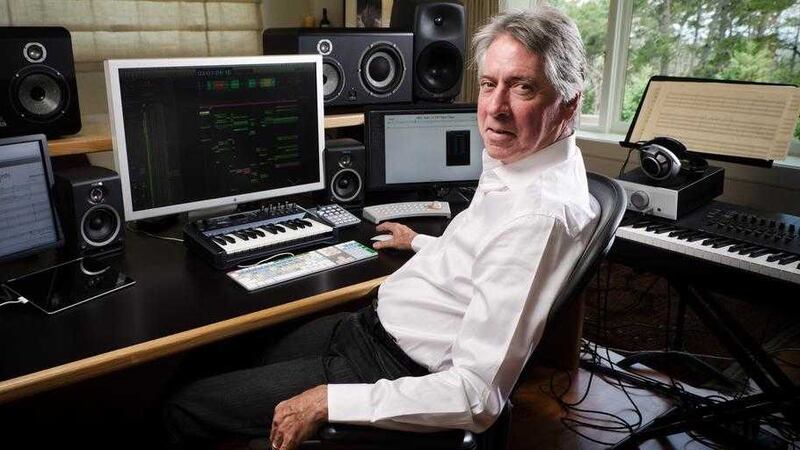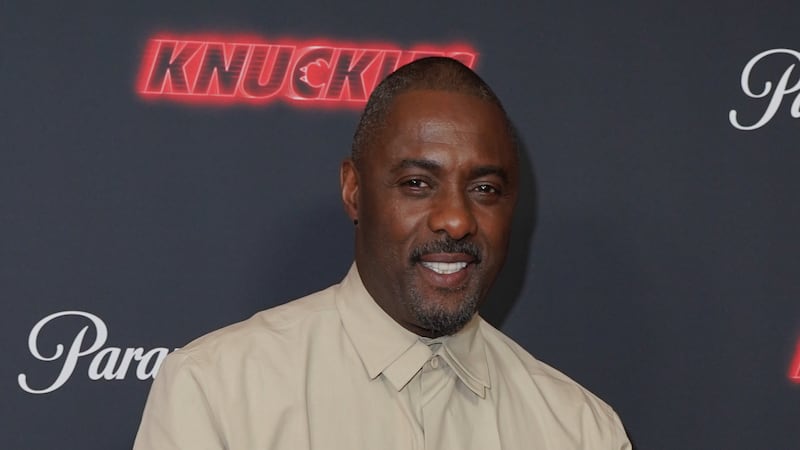How does your role as a film composer work?
Every one is a little bit different. With an animation like The Polar Express you absolutely start with the script. But most often I first see uncut scenes and have a meeting with the director, who talks about his vision for the film. Then I go off into a room and start to work.
Are you involved after you write a score?
Absolutely, I conduct the orchestra during the recording. I then attend the dub of the film and sit there for days and put it together in a final cut.
You’ve worked a lot with director Robert Zemecki, who wrote Back to the Future. How did your relationship start?
We started about 31 years ago on Romancing the Stone. We got along very well and Bob liked what I did for his film. I don’t think it hurt that the film was successful. So when it came the time for his next film, which was Back to the Future, he decided to invite me back and see if things still worked. The Walk [based on high-wire artist Philippe Petit's walk between the Twin Towers in 1974, which is currently in cinemas] is the 19th movie of Bob’s in a row and he’s become an amazing friend and collaborator.”
Why do you think Back to the Future is still so iconic and popular today?
It was certainly a well written film and script. The films themes of friendship and mentoring are timeless and the chemistry between the characters were superb.
Would you like to time travel?
I would prefer to stay put. Everything in the past is a little scary and unfortunately it's sounding that everything in the future is a little scary as well.
You've worked in so many different mediums – from horror and sci-fi to romantic comedy and Disney – do you have a favourite genre?
I feel comfortable with all of them. Doing animation is fun and interesting. With live action –whether a comedy or serious drama – it's all storytelling in the end.
What makes a good film score?
You could have a score that causes a great deal of attention to itself and be memorable but it doesn’t necessarily mean it’s a good film score. A good film score has to be part of the fabric of the film and find an elegant way to support the telling of the story without calling too much attention to itself. But when its time to step forward and take centre stage it should be able to do that as well.
How have advances in technology impacted upon your work?
One of the big differences it that back in the 'old days', we didn’t have the ability to do a mock-up of a score for a director. Often the most a director might hear was someone playing the theme on a piano and then the next thing they know they are in a recording studio with a 100-piece orchestra hearing their score performed.
Now a director is able to hear a very good representation of their score at an early stage. But a computer is not able to capture what that orchestra is going to sound like and the director is making decisions without having heard the true sound. Another miracle of technology is that now different aspects of a film's making can happen globally with people conversing and collaborating in real time.
What is your advice to young people on the best route into this industry?
It’s a very individual path that people who write music for film takes. An education is very important but it really comes down to constantly preparing oneself and then waiting for that opportunity and when it does arrive then you have to be able to really bring something from your music soul in response.
You had your first film credit at the age of 21 – what was your path?
I played music all through my younger years. I played drums, woodwind and guitar. I started writing music in my early teens and studied it at college. I got my first opportunity really by an accidental event. I was able to get through that first challenge and the next thing I know I’m a film composer.
You've most recently worked on The Walk. Did you enjoy that project?
That was a story that was very near and dear to Bob Zemecki for a number of years. It's an amazing story about an amazing man who did an amazing thing and required all kinds of things musically including tension and an array of emotions.
:: Alan Silvestre will be taking part in a Q &A ahead of the screening of Back to the Future on October 27 at Belfast's Odyssey Cinema. He will also be hosting a masterclass on music composition for 16-21-year-olds on October 28. For further information and booking www.cinemagic.org.uk.








